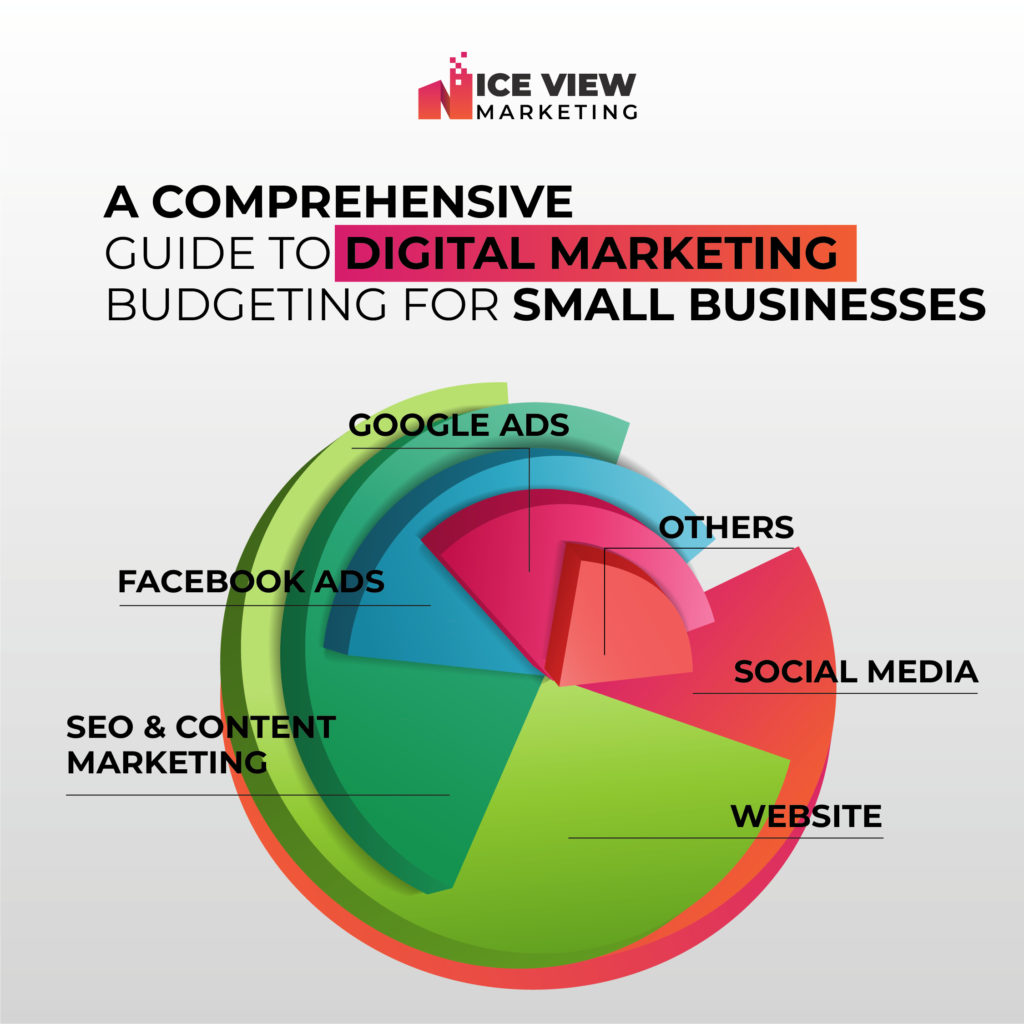
In today’s rapidly evolving digital landscape, establishing a robust online presence is crucial for the success of small businesses. However, navigating the world of digital marketing requires strategic planning, especially when it comes to budgeting. In this comprehensive guide, we’ll delve into the essential aspects of digital marketing budgeting tailored to meet the unique needs of small businesses.
Setting Clear Objectives: The Foundation of Your Budget
Before allocating funds, it’s imperative to define your digital marketing objectives. Whether it’s increasing brand awareness, driving website traffic, or boosting sales, clearly outlined goals will serve as the foundation for your budgeting strategy.
Understanding the Digital Marketing Landscape
Digital marketing comprises various channels, from social media and content marketing to paid advertising and email campaigns. Understanding the strengths and weaknesses of each channel will help you prioritize where to allocate your budget effectively. For instance, if your target audience is highly active on social media, investing in targeted social media campaigns may yield the best results.
Prioritizing Your Channels: Quality Over Quantity
While it might be tempting to spread your budget across multiple channels, focusing on a few key platforms often yields better results. Quality over quantity should be your mantra. Evaluate where your audience is most active and tailor your strategy accordingly.
Allocating Budgets for Paid Advertising
Paid advertising is a powerful tool for small businesses to amplify their reach. However, it’s crucial to set realistic budgets for platforms like Google Ads and social media ads. Continuous monitoring and optimization will ensure you get the most value for your investment.
Investing in Content Marketing: Your Brand’s Storytelling
Content is king, and investing in high-quality, engaging content can significantly impact your digital marketing success. Allocate a portion of your budget to content creation, including blog posts, videos, and other relevant materials that resonate with your target audience.
Social Media: Building Relationships and Fostering Engagement
Building a strong social media presence is essential for small businesses. Allocate budget for targeted social media campaigns, influencer collaborations, and community engagement. Social media is not just a promotional tool but a platform for building relationships with your audience.
Monitoring and Analytics: Maximizing ROI
Investing in digital marketing tools and analytics is crucial for tracking the performance of your campaigns. Regularly monitor key performance indicators (KPIs) to assess the effectiveness of your strategies. Adjust your budget allocation based on what’s working and what needs improvement.
Adapting to Change: Flexibility in Budgeting
The digital landscape is dynamic, with trends and algorithms changing regularly. Allocate a portion of your budget for experimentation and adapting to emerging trends. Flexibility in budgeting ensures that you can seize new opportunities and stay ahead of the competition.
Digital marketing budgeting for small businesses is a dynamic and strategic process. By setting clear objectives, understanding the digital marketing landscape, prioritizing channels, and adapting to change, your business can maximize its online presence and drive sustainable growth. Remember, a well-thought-out budget is not just an expense but an investment in the future success of your small business in the digital era.
